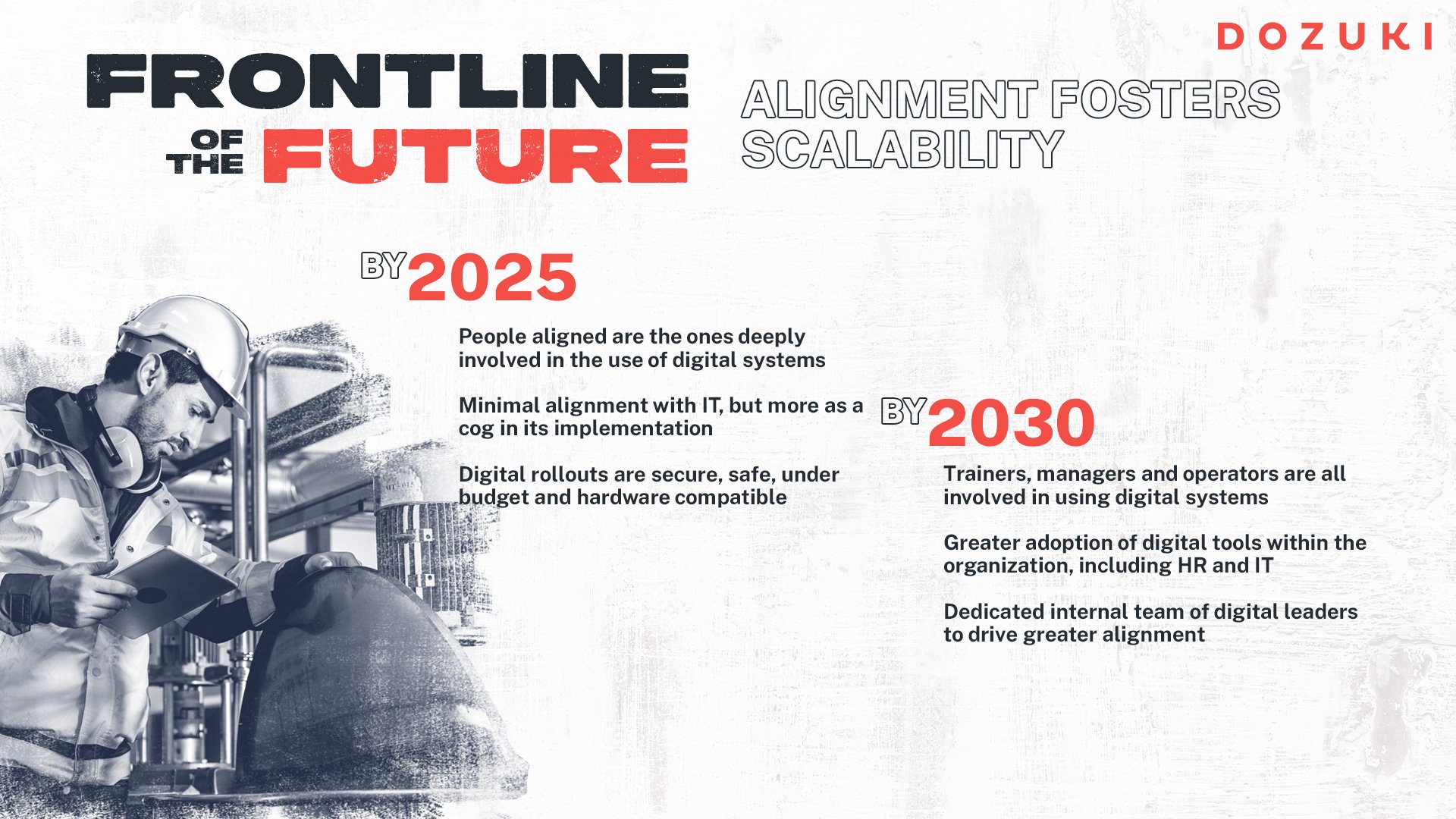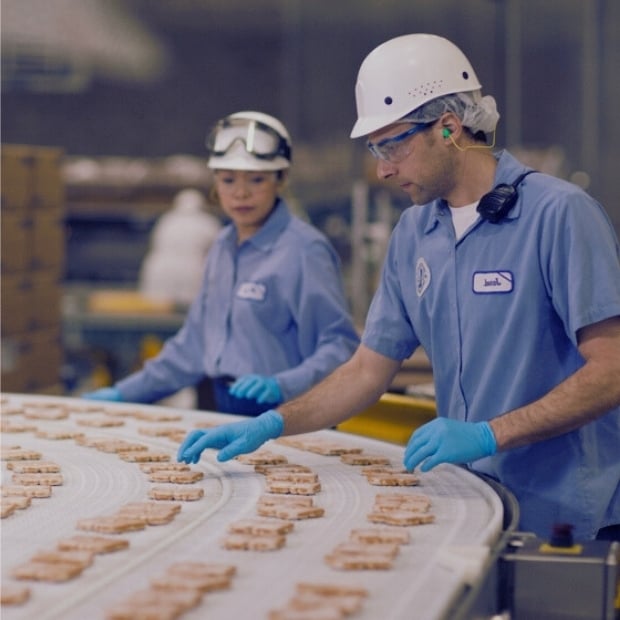Creating The Frontline Of The Future, Part 8

Alignment Fosters Scalability
In the early stages of digital transformation, only a few stakeholders are involved
Manufacturing companies typically begin their journey by trying to solve specific issues in real time, or lingering issues that need resolution.
Frontline workers and their supervisors will work as lone wolves trying to scratch their own itch, i.e., digitizing work instructions or updating and organizing process documentation.
But for an organization to truly innovate, they must seek alignment.
Accenture published a report called Cracking the Code on the Digital Factory, based on a global study of 450 manufacturers. Here’s an insight about alignment that stood out:
“Why the struggle to embrace digital? One might be tempted to think the technologies themselves are the culprit, but that’s not the case. Their research found that non technical factors collectively overshadowed technology issues as the biggest challenges in digital transformation. These factors include the management of digital deployment, realigning the organization, reengineering business processes and skill development.”
As usual, alignment is a people issue.
Standardized processes are the foundation for building a standardized, digital operational training system. Work instructions are a solid start, but the real magic is when organizations solve executive level challenges of training, production insights, and operational excellence.
As manufacturers progress along their digital journey, here’s what we foresee from the perspective of alignment:

To keep building alignment for driving digital change at your manufacturing company, here are our recommendations:
Alignment uncovers kaizen opportunities
Building a standardized, digital operational training system requires collaboration across departments.
We recently worked with a camera manufacturer who struggled with getting their teams aligned. They wanted a streamlined method of information sharing that easily captures valuable operator knowledge.
Dozuki provided them a space where information could become more fluid between various departments and personnel, a more decentralized model of information flow.
The benefit of this system was, it led to an abundance of new and creative ideas for solving operational problems and enacting kaizen opportunities. This game changing program set in motion a virtuous cycle that continued to uncover new opportunities log after the original program launched.
Diversify the digital burden
Nobody wants to do all the change management efforts themselves. If you have new ideas for digitizing work instructions, ensure you have enough change agents who are ready to step up. Unfortunately, there is no standard process for getting buy-in across departments.
The good news is, if you start recruiting leaders for each one, the ownership disseminates. Ask yourself, “Who are other leaders closely aligned within production performance?”
If you focus on open minded team members who are looking for solutions and willing to try something new, they will step up. People will take a stake in the process and will feel like they’re leading part of the transformation.
Several of our customers have formalized these change agents into an internal think tank of sorts. And framing it as such elevates the level of purpose and status for the cross departmental team.
Social proof is worth its weight in gold
Dozuki has manufacturing customers with many thousands of users spanning dozens of locations and geographies, and many of them started small.
One line or one facility that proved out the business case and helped scale digital transformation across the entire organization. Those initial success stories create the social proof that can be leveraged to make a business case.
If you’re trying to do the same at your company, focus on how the solution has been deployed at one or two plants. Credit the system with turning around the performance of a struggling department, i.e., authoring time savings, scrap waste reduction, changeover time, and so on.
Use these data points to reassure the stakeholders that once you standardize the processes, the program will become more autonomous with employees. Alignment will happen as a matter of course.
In conclusion, here’s a question worth asking your digital leaders:
If you believe technology will transform your operations, how far are you willing to go to get buy-in from management?
Dozuki recently sat down with a manufacturing executive who shared a great story about their digital transformation journey and getting management on board.
This person understood that the people making the decisions didn’t have the same perspective as him regarding why they needed visual work instructions. So he created a work instruction app that simulates the assembly of a puzzle.
The proof of concept demonstrated the value of having visual work instructions for something everyone has familiarity with—a puzzle. He thought, if the decision-makers could see how the work instructions helped assemble a puzzle, they could much more easily make the leap to understanding how visual work instructions would be helpful for operators assembling their products.
Sure enough, this puzzle helped stakeholders understand what was true and obvious for the frontline operators to become real for those with different perspectives.
This is the level of alignment we foresee in the frontline of the future.
Continue on to Part 9.

Written by Lucas Bishop
Related Posts
Blueprint for Brilliance: Takeaways for Joining the Ranks of the World’s Most Productive Companies
LNS Research recently released its 2025 Benchmarking the Journey of the World’s Most Productive Companies report, and the findings are a wake-up call for the industrial...
Continue ReadingThe Future of Manufacturing in 2026: Empowering the Connected Worker
Key Takeaways (The TL;DR) Connected worker initiatives will be central to driving efficiency, safety, and productivity in 2026. Manufacturing technology is advancing...
Continue ReadingWhy Workforce Agility Will Define 2026
In 2026, manufacturers won’t be judged solely by what they produce, but by how fast they can adapt. The year ahead brings a wide range of scenarios: cautious optimism...
Continue Reading
